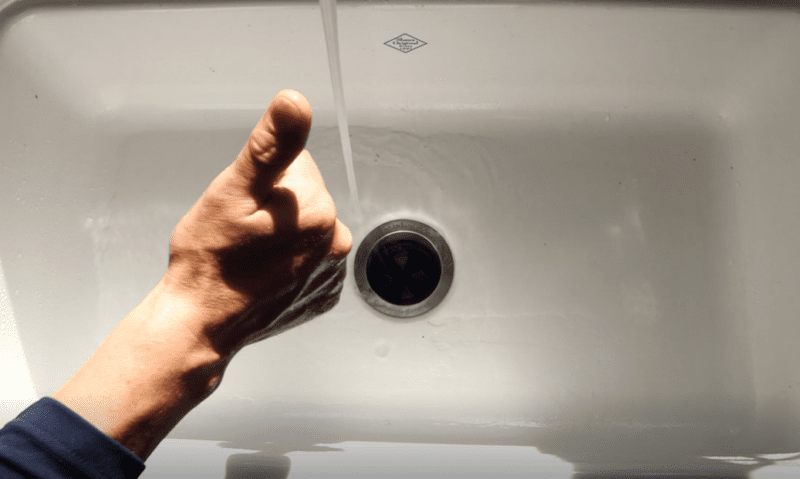Blog
Plumbing Winterization Tips to Protect Your Pipes

Seasonal plumbing maintenance takes on greater importance when the season is winter. Winterizing tips help homeowners prepare their homes for colder temperatures. Frigid weather can be particularly hard on pipes and the consequences of neglecting plumbing maintenance at this time of year can be particularly costly. Frozen pipes not only deprive the household of water supply until they thaw, a pipe that ruptures due to freezing can discharge hundreds of gallons into your home in a very short time, inflicting catastrophic water damage.
Avoid these issues and protect your home when you take the time to perform these quick winterizing tips for your plumbing system.
Outdoor Plumbing Winterization Tips
- Disconnect hoses. Remove and drain all exterior hoses. Leaving them connected can result in the formation of ice, leading to a build-up of pressure in indoor water lines and a potential leak or break.
- Drain water lines. Turn off the water supply to outdoor faucets, and drain any remaining water by opening the taps until they run dry.
- Dress up faucets. Protect outdoor pipes from freezing temperatures by insulating them with an outdoor faucet sock.
Indoor Plumbing Winterization Tips
- Go with the flow. One of the best plumbing winterization tips is as easy as turning on the faucet. Since moving water won’t freeze, open taps to allow cold water to trickle out. Employ this strategy during a cold snap, or overnight when temperatures are at their lowest.
- Insulate pipes. Plumbing that runs through exterior walls or uninsulated spaces such as the crawl space or attic needs an added layer of protection. Wrap pipes in foam insulation, ideally with a layer of electrical tape underneath.
- Mind the temperature. Don’t let interior temperatures dip below 55 degrees, or higher, if extreme temperatures are in the forecast. If you have a zoned system, adjust all thermostats accordingly.
- Circulate warm air. Open cabinet doors beneath kitchen and bathroom sinks to allow warm air to reach the pipes.
- Keep out the cold. Keep the garage door closed to prevent cold air from affecting the plumbing on bordering walls.
- Seal air leaks. Even the smallest hole can allow enough cold air in to freeze pipes. Check for leaks around doors, windows, exterior wall sockets and switches, electrical wiring and plumbing. Seal leaks with caulking, weatherstripping or insulation where needed.
Don’t Forget to Drain Your Pipes!
Why is it important to drain pipes to prevent freezing this season? Here are some of the major problems that can be caused when you fail to complete this task.
- Water in the pipes may get stuck and freeze in close quarters. The resulting ice has the potential to cause pipes to burst, which can cause water damage and require replacement. The replacement and repair process is expensive, so you should be proactive about avoiding this issue.
- Frozen water in pipes can cause the pipes to expand. Even if pipes don’t burst, significant damage can be done in the winter.
How to Drain Pipes to Prevent Freezing
Here are steps you should take when you’re draining pipes before freezing weather arrives:
- Make sure the water supply to pipes has been cut off. The main supply will have to be shut off during this process. If you’re uncertain about how to turn off the main supply, contact your water service provider or a local licensed plumber.
- Flush the toilets in your home. Continue flushing until the water in the tank of the toilet is completely gone. Turn the faucets in sinks, showers and bathtubs on in order to drain this water.
Tips to Winterize Your Plumbing
Winterizing your household plumbing is a task that’s much better done now—before the forecast mentions a severe cold spell. Here are three seasonal winterizing tips for your home to protect yourself from emergency plumbing repair service in Cincinnati:
Insulate Pipes
Buy foam pipe insulation sleeves that can be slipped over pipes without disconnecting the pipe. Place them on all spans of water supply lines that are accessible: inside the house, down in the crawl space, up in the attic, or out in the garage.
When you insulate pipes, especially those that run through uninsulated areas and along exterior walls, you help prevent the surrounding cold temperatures from freezing the water within. When pipes freeze, damage often results, leading to leaks and even burst pipes.
Seal Air Leaks
Exterior openings in the home’s envelope should be closed to prevent frigid outside air from contacting indoor pipes. This means sealing up or closing crawl space vents and/or access doors and plugging or covering other openings such as gaps around access points where plumbing pipes and electrical conduits enter the house.
Check along the intersection between exterior walls for cracks and use caulking to fill them—also along the long joint between the exterior wall and the foundation sill. To close openings too large for caulking, use expanding spray foam insulation in a can.
As you check and seal these areas, use these winterizing tips to protect other areas of your home against cold drafts, too. Doing so prevents heat loss and improves energy efficiency over the winter.
- Apply weatherstripping to windows and doors
- Caulk around windows and door frames
- Place foam gaskets behind outlet covers and switch plates
- Seal leaks around your chimney as well as furnace and water heater vents using fire-resistant materials.
Drain and Disconnect Components
Freezing that occurs in outside sources can damage interior plumbing. Winterizing tips keep these components in good shape and protect your home’s plumbing system. Disconnect garden hoses from exterior faucets, drain the water out and store them. Turn off the water valve to underground sprinklers and drain residual water from the pipes or blow it out with compressed air. If your outdoor faucets are frost-proof with dedicated indoor shut-off valves, now’s the time to shut the valves and open the faucet to drain out remaining water.
Remember Annual Evaluations of Your Plumbing System
One of the best winterizing tips around is prevention to protect your home’s important infrastructure. Now is the right time to make sure plumbing and electrical maintenance and inspections are performed at home. The Apollo Care Plan makes it easy for Cincinnati area homeowners to access these important services and ensure they are completed when needed.
For one low monthly cost, members receive annual plumbing and electrical evaluations as well as two heating and cooling maintenance visits each year! As a member, your benefits include:
- Annual precision master heating inspection and tune up, with carbon monoxide testing
- Annual precision master cooling inspection and tune up
- Annual plumbing evaluation
- Annual electrical evaluation
Plus, members have access to additional benefits that protect them in case a malfunction arises with these critical household systems. Receive first-in-line priority service – call us at the dedicated phone number whenever you experience a problem. Receive a discount on trip charges for service and 15 percent off any needed repairs!
Prepare for Winter with Apollo Home
Get your home ready for winter with the expert plumbing services from Apollo Home! Verify the condition of your plumbing equipment now before colder weather arrives. Contact Apollo Home today to schedule your plumbing evaluation.









